Two More NC Newspapers Join Call to Prevent Legalized Nifonging
"Do it right," Charlotte Observer:
No need to rush revision of state's `open discovery' law"Withholding Evidence," Winston-Salem Journal:If anyone wonders why the N.C. General Assembly should be cautious about revising its 2004 "open discovery" law requiring prosecutors to share their files with defense lawyers, here are a few reasons: Darryl Hunt. Alan Gell. And Mike Nifong.
Had a strong open discovery law been in effect and fully implemented years earlier, Darryl Hunt might not have spent more than 18 years in prison for a murder he did not commit. Alan Gell might not have had to endure two trials and time on Death Row for a murder he did not commit.
And had the law not been in effect, Durham District Attorney Mike Nifong could have concealed information from an interview with the accuser by an investigator in the Duke lacrosse case. Notes of that interview indicate she changed her story and wasn't certain a rape occurred. That information, the News & Observer reported, was a factor in the dismissal of rape charges against three Duke players.
These cases ought to remind legislators to be careful about making changes in a law that, unfortunately, North Carolina has shown it needs to protect the innocent from unscrupulous or incompetent prosecutors. The state criminal justice system has sent too many innocent people to prison in cases that sometimes involve prosecutorial misconduct. That's one reason the General Assembly has created a commission on actual innocence to provide a better way to examine credible claims of mistaken convictions.
We believe most N.C. prosecutors are honest, competent and dedicated to catching criminals and taking them to trial. That's as it should be. But we also believe legislators have a responsibility to make sure that prosecutors are not able to keep confidential information that may help establish a defendant's innocence.
District attorneys are concerned that the law requires them to disclose confidential informants as well as personal information about witnesses such as Social Security numbers, reports Anne Blythe of The News and Observer. The DAs fear that having to lay out everything -- and to keep and disclose records of every contact with witnesses -- will undermine their ability to do their jobs. They worry that prosecutors will risk ethics charges if they forget to record even chance meetings with witnesses in a corridor.
Both defense lawyers and prosecutors have valid concerns, but both sides must remember where the public interest lies. It's not important who wins or loses; learning the truth and producing a just result is paramount. The groups should work together with that principle in mind and come up with a solution that achieves two purposes: to provide defendants with information that fairness dictates they should receive; and to address prosecutors' concerns about onerous requirements. There's no reason to make this a rush job. Take the time to do it right.
It hasn’t been long since Attorney General Roy Cooper ended the yearlong ordeal of three Duke lacrosse players wrongly accused of rape. Yet, the state’s district attorneys want to change the discovery law that helped defense lawyers show that the state had no case against the young men.
The General Assembly should kill the bill and refer prosecutor complaints to a standing study committee, which can independently research whether the discovery law has any serious flaws.
Under a three-year-old North Carolina law, district attorneys are required to share evidence with the defense. The law stems from the wrongful prosecution of a number of North Carolina cases in which prosecutors held back exculpatory evidence — that is, evidence that indicated that the defendants were innocent.
Prosecutors complain that some elements of the law are unfair to their side. But the prosecutors are caught up in the wrong game when they discuss fairness. The goal of a criminal-justice system is not to be fair — it is to provide justice, to convict the people who committed crimes and to punish them appropriately. Implicit in that goal is the exoneration of any defendant who is not guilty.
A prosecutor who discovers evidence that clears an innocent defendant and brings that information to a court’s attention has performed his public duty every bit as well as a prosecutor who gets a conviction of the truly guilty party. Earning a conviction of an innocent person is not a victory for a prosecutor; it is a serious loss for the criminal-justice system.
The prosecutors say that some of the evidence they are forced to hand over to the defense is not exculpatory. But it is not their job to decide what information the defense will not need. Defense attorneys deserve to see all of the evidence so that they can decide how best to build a case for their clients.
The prosecutors are also concerned that the law requires the disclosure of confidential informants and of information that witnesses do not want released.
Both of those issues were rigorously debated in the General Assembly when the law passed several years ago. Legislators decided, at that time, in the wake of several prosecutorial scandals, that the defense needed that information. It is important to remember that, while North Carolina has a long tradition of fair and distinguished service by prosecutors, defense attorneys and judges, it also has had a number of deviations from that record of honor.
Prosecutors lost their argument three years ago. Without presentation of an overwhelming body of evidence that shows this law is not working, their appeal of the legislature’s earlier decision should be denied.
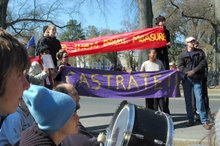





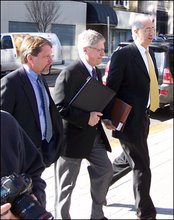
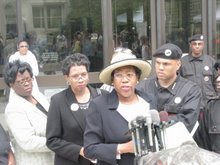
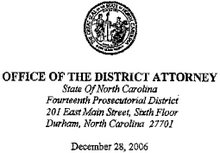






















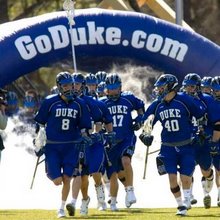



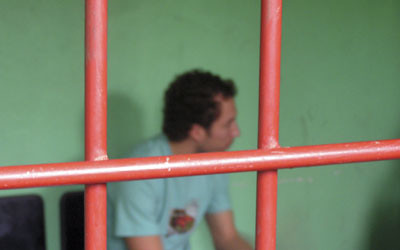
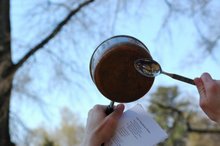









10 comments:
Actually, the Herald has not remained silent on the issue. Three or so weeks ago, as an obvious device to downplay Nifong's withholding of DNA evidence, John Stevenson did a story based on quotations from a number of assistant DA's in Nifong's office about how hard the new law, coupled with a Court of Appeals decision requiring that prosecutors either record or make notes of witness conferences, was making life for the District Attorneys. The Snooze Room followed up with an editorial a day or two later on how unfair the Court of Appeals decision was, and (as I recall) suggesting that steps be taken to redress the horrible imbalance.
As an aside, the assistant DA's complained about the possibility of having their trial strategy disclosed. Seems to me that if they stick to the stategy of producing all available evidence, they don't have anything to worry about. If on the other hand, they are trying to achieve a conviction by any means available, I'm sure that they are finding current law a hardship. One thing for sure, Nifongism is alive, well, and pervasive in the Durham District Attorney's office.
Anon:
You are correct that the Herald Sun has addressed the issue with a pro-Nifong/pro-Nifonging stance. We did address the Stevenson article when it came out ( Here ). While the article and the editorial do not refer specifically to the bills the NCCDA are pushing (IIRC) stating that they had not addressed the issue was both inaccurate and a missed opportunity. Thanks for taking the time to offer the correction.
If the North Carolina Conference of District Attorney's are allowed to water down the state's Open Discovery Statue the "Duke 3" will NOT be the last in this state to be Nifonged!
Is this some kind of a subtle support Nifong attempt? In light of the events of the past year, its clear that the DAs want conviction and not justice.
1:02, I never thought about the watering down of the state's Open Discovery Statue as a subtle attempt to support Nifong but it seems to be a absolutely perfect description of whats happening.
Carolyn says:
This latest legislation to destroy safeguards for defendants comes AFTER a corrupt DA was exposed. No wonder Nifong was smirking in court.
It gives me the creeps to know that soon another North Carolina DA could wear that same smirk. And this time there won't be a wealthy Duke parent to wipe it off.
Please write to the legislators asking them to can HB768/S1009!!
It's easy -- just quote some of the comments from the ariticles L/S highlights here....
do it today
internete-mail@ncleg.net (readable by all Legislators
ncsenatemembers@ncleg.net (readable by all Senators)
nchousemembers@ncleg.net (readable by all House Members)
My comment from a few days ago on this issue still stands:
The existing Open Discovery Law was deemed necessary because of the very type of misconduct that was engaged in by D.A.M.N. IOW, DAs got this law the old-fashioned way: they EARNED it.
DAs who think the burden is too great under the existing law should find another employment opportunity.
Instead they say "trust us." My response is "trust is something you haven't earned."
Post a Comment